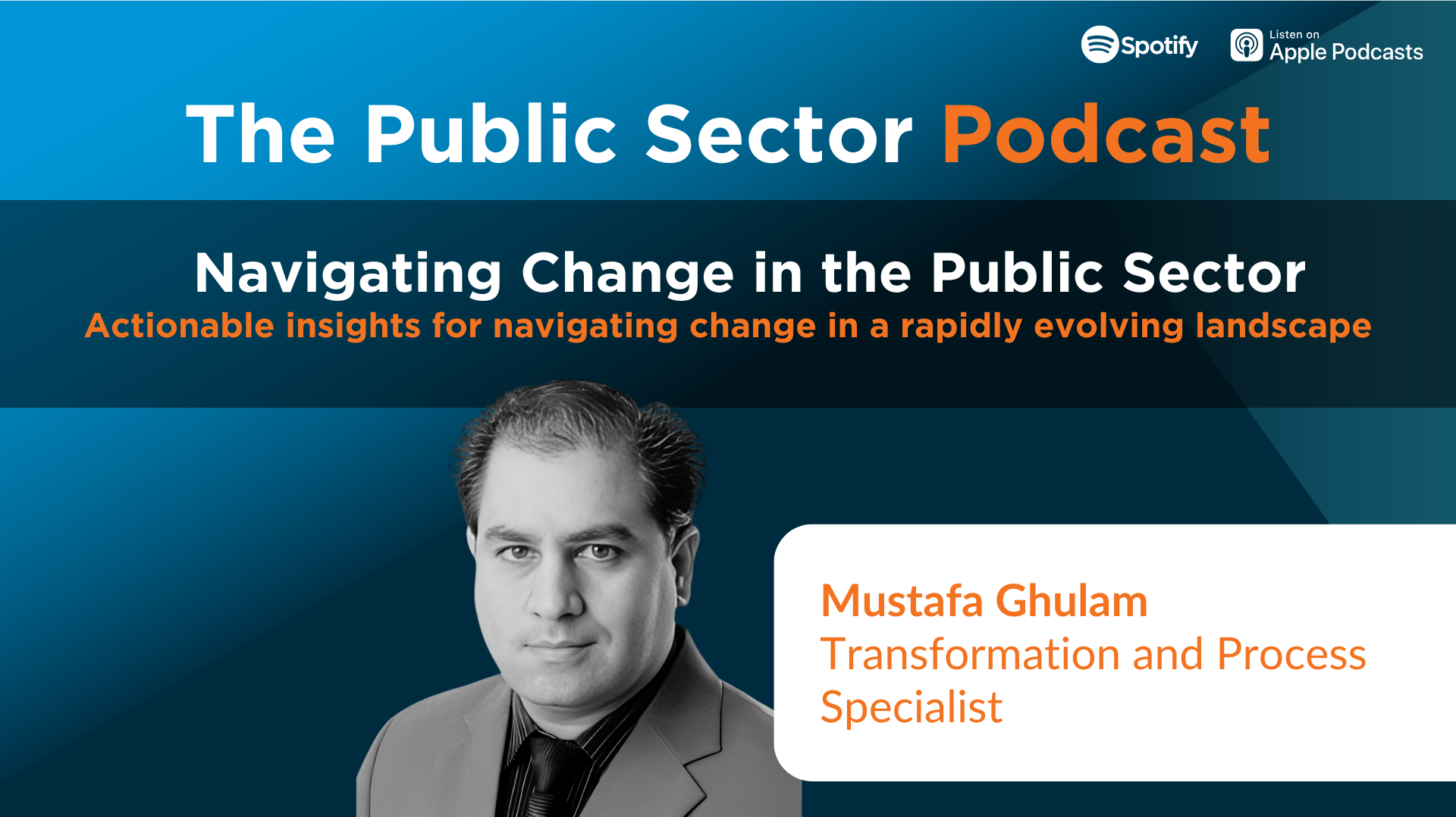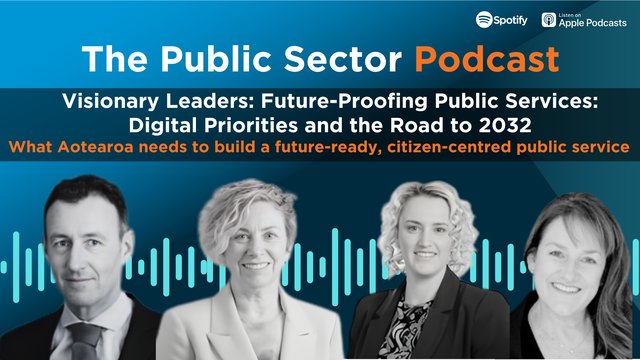

Speaker
Mustafa Ghulam, Transformation and Process Specialist
Show Notes
In this episode of the Public Sector Network podcast, host Charlie Hammer, co-founder of Public Sector Network, sits down with change management expert Mustafa to discuss the critical role of change management and business process mapping in the public sector. With the rapid pace of digital transformation and the growing demands on government services, understanding how to navigate and lead change effectively has never been more important.
Episode Highlights
Introduction to Public Sector Network
Charlie introduces the Public Sector Network (PSN), a global community platform that connects government, industry, and academia to foster knowledge sharing, networking, and benchmarking. Operating for over a decade across Australia, Canada, the US, and the UK, PSN offers events, training programs, research, and advisory services to help improve public sector outcomes.
The Importance of Change Management
Change is inevitable, especially in the public sector, where evolving technologies and increasing public expectations push organizations to do more with less. Mustafa highlights the critical need for public sector professionals to develop strong change management skills, especially during digital transformation initiatives.
Statistics show that up to 70% of digital transformation efforts fail, often due to poor communication and lack of stakeholder engagement. Mustafa emphasizes that change management, though a relatively new discipline, has become increasingly vital. By focusing on effective stakeholder engagement and communication, government teams can ensure smoother transitions and better outcomes for their communities.
The Role of Business Process Mapping
Mustafa underscores the connection between business process mapping and successful change management. Business process mapping enables organizations to understand their current workflows, identify inefficiencies, and lay the groundwork for meaningful change.
He cautions against automating flawed processes, emphasizing the importance of addressing underlying inefficiencies before implementing technology solutions. Mustafa quotes Einstein: “If I had one hour to solve a problem, I’d spend 55 minutes defining the problem and five minutes on the solution.” This approach aligns with the goal of simplifying and standardizing processes before pursuing automation.
Top Tips for Managing Change in the Public Sector
Based on his experience working across local, state, and federal government levels in Australia and New Zealand, Mustafa shares two key tips for managing change:
- Engage Early: Change management should begin at the start of a project, not as an afterthought. Early engagement ensures that stakeholders are aligned and prepared for the journey ahead.
- Involve Stakeholders: Regularly engage both internal and external stakeholders to gather feedback and address their concerns. This collaborative approach builds trust and ensures that the change process meets the needs of all parties involved.
Creating Effective Business Process Maps
Mustafa offers insights into developing effective business process maps, which play a critical role in driving change initiatives. Key steps include:
- Engaging the right stakeholders to understand the reality of current workflows.
- Iterating the process map to refine it based on feedback.
- Using the map as a foundation for broader change efforts, supported by change management strategies to overcome resistance and foster buy-in.
Training Opportunities with PSN
PSN offers two targeted training courses:
- Change Management for Digital Transformation (two half-day sessions): Covers foundational theories, best practices, and tools for managing resistance to change.
- Business Process Mapping (full-day session): Focuses on practical techniques for analyzing workflows and creating actionable process maps.
Mustafa describes these sessions as interactive, problem-solving workshops where participants can share real-world challenges in a safe environment. The courses emphasize practical application, equipping attendees with toolkits and frameworks like ADKAR and Kotter’s change model to implement what they’ve learned in their daily roles.
Key Takeaways
- Change Management: Early and continuous stakeholder engagement is critical for successful change initiatives.
- Business Process Mapping: Understanding current workflows is essential for designing effective solutions and avoiding the pitfalls of automating flawed processes.
- Practical Training: PSN’s courses offer hands-on learning and tailored advice to help public sector professionals lead change confidently and effectively.
Closing Remarks
Charlie and Mustafa wrap up the discussion by inviting listeners to explore PSN’s training programs. These sessions provide valuable opportunities to enhance skills, foster collaboration, and drive meaningful change in the public sector.
For more information and to register for the courses, check out the links in the episode description. Thank you for tuning in, and we look forward to seeing you at the next training session or event!






























